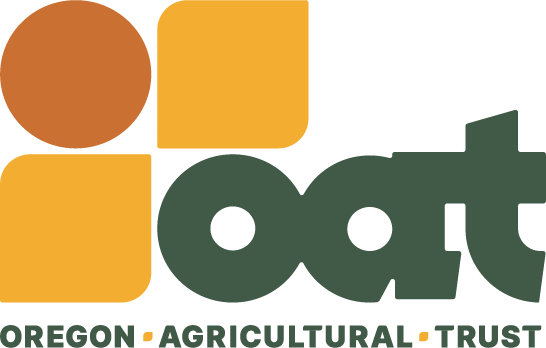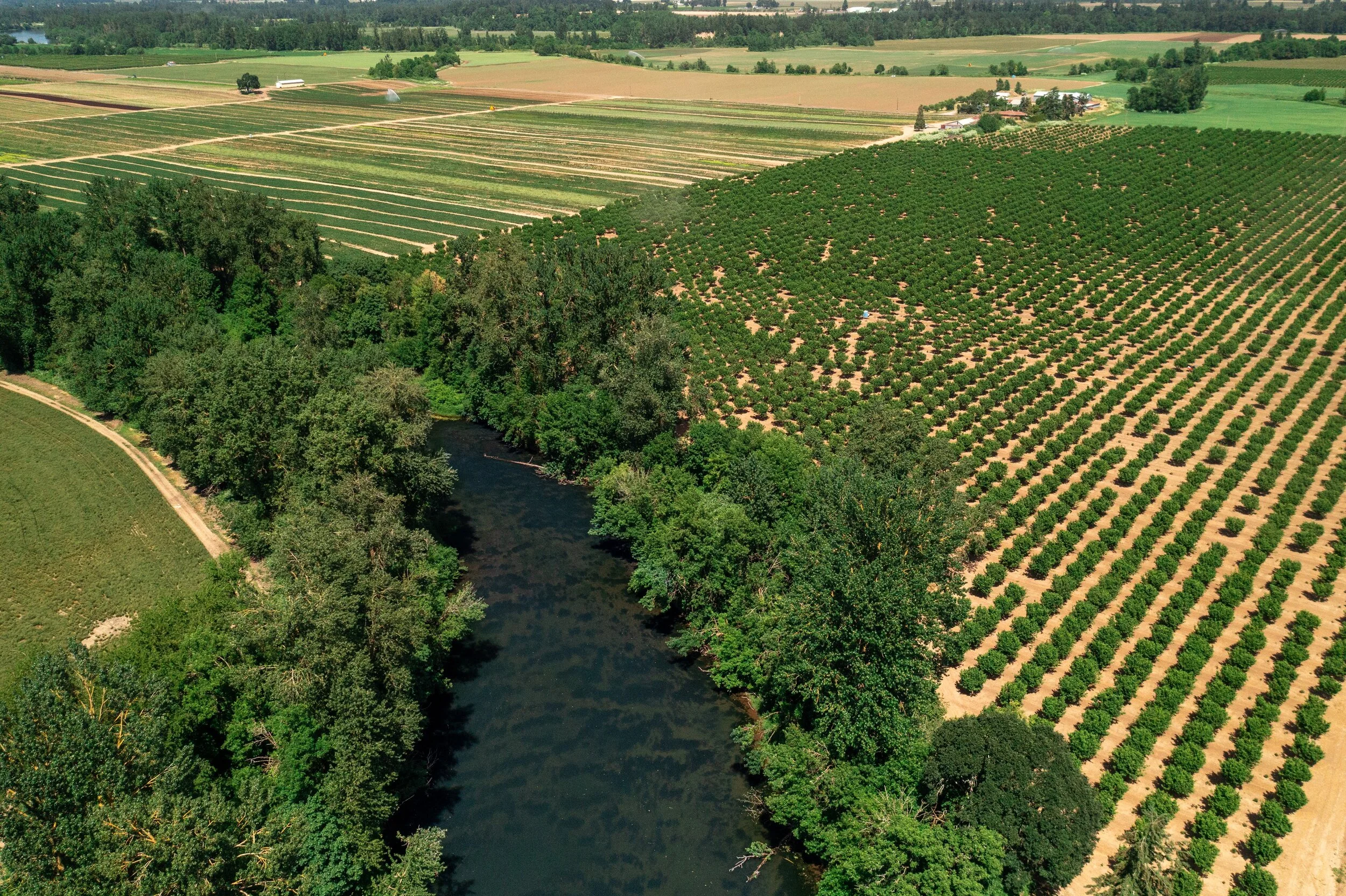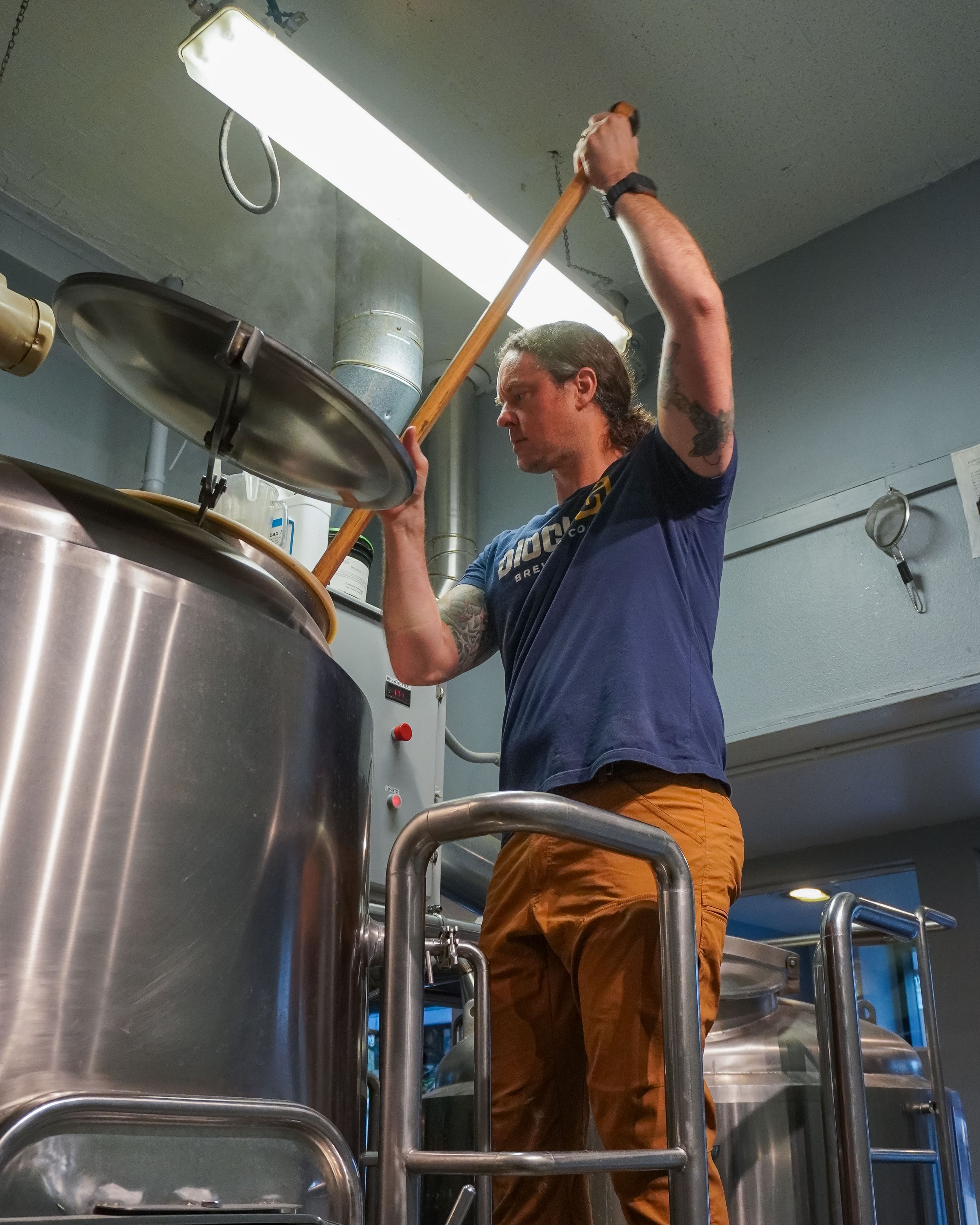We must maintain the level of agricultural health that our region is known for and strive to take the best care of our land that we possibly can.
- Garrison Schmidt, Head Brewer, Block 15
This is the third year of Cheers to the Land, and we couldn’t be more thrilled that Block 15 has been one of our partner breweries from the very beginning.
We asked Head Brewer Garrison Schmidt and Marketing & Creative Director Kelsea De Filippis to share how Block 15 practices sustainability and how they work with farmers to create their incredible craft beers.
OAT: What is the vision and philosophy of Block 15?
Kelsea De Filippis: Block 15 aims to elevate excellence in the craft beer and beverage experience, measured by endless passion, curiosity, and drive for accessible brilliance. Our family includes our Corvallis Downtown Brewpub, South Corvallis Production Brewery, Winery, and Taproom, Caves Restaurant, and craft distribution through the Pacific NW.
We strive to make sure we’re doing good on our part for generations of brewers to come, taking steps to ensure we’re looking at our footprint and bettering our sustainability practices all while not compromising the craft of our product. Good food and beer comes from the resources on our land and we recognize that it is our responsibility to look after this relationship with the environment.
OAT: In what ways does Block 15 integrate sustainability practices?
Head Brewer Garrison Schmidt
Garrison Schmidt & De Filippis: In the winter of 2021, we took the biggest dive into our sustainability practices and installed 98kW of Solar Panels to our Southtown facility. This is enough energy to power 40% of our production facility and Taproom Restarant. Because beer, especially lagered beer, takes a significant amount of energy to chill we were able to reduce our footprint on energy consumption. Along with that, we minimize our water consumption, use pelletized hops to reduce shipping volume and keep trucks off the road, process our liquid waste so that it's pH neutral, use our grain as feed for cattle, and have a general mindset in our brewery that we are stewards of our environment and the community.
OAT: What are the challenges and benefits of focusing on sustainability as a brewery?
Schmidt: Using less water in a brewery is always challenging. It's a water based industry, so we do the best we can and use as little water as we can while still getting the job done. I see the benefits as a long-term investment. If we take care to use as little as we can now, and are mindful of our water table and the rivers all around us, we will be able to keep brewing for generations. If we are careless now, that's not guaranteed.
OAT: What are some of your favorite Oregon-grown ingredients?
Nick Arzner, Block 15 Co-Founder
Schmidt: Hops! We have some genuinely fantastic hop farms in the Willamette Valley, and we're proud to source many of our favorite hops from right here in our neck of the woods.
OAT: Are there Oregon ingredient producers you work with to create your beers, and if so, can you tell us about them?
Schmidt: We work closely with Coleman Agriculture, Crosby Hop Farm, Indie Hops, Oregon Hophouse, Oregon Fruit Co., and many more Oregon hop farms, and they are some of the most fun, educational, and collaborative partnerships that we have been a part of.
OAT: How do you see agricultural land protection as important to the beer industry and people who love beer?
Schmidt: Beer, especially craft beer, is an agricultural product. Maintaining a healthy agricultural community is vital to our ability to keep diversity in our recipes, which keeps diversity in your tap lists. Folks enjoy drinking many different styles of beer, with varying characteristics and all of the wonderful flavors and aromas that craft beer is known for. We must maintain the level of agricultural health that our region is known for and strive to take the best care of our land that we possibly can.
OAT: How do you support local farmers through the beer making process?
Schmidt: Like many breweries, we give our spent grain and liquid organic waste to local ranchers free of charge as feed and fertilizer. As mentioned above, we also reduce our water use and neutralize our liquid waste before disposal, keeping our rivers healthy and our groundwater clean. In addition, we source ingredients that are local to us to build and maintain a relationship with the farms we have. We are lucky to have a plethora of farms surrounding us, so we utilize their products instead of sourcing out of the country.
OAT: This is Block 15’s third year participating in Cheers to the Land! What inspired you to get involved initially, and to stay involved as a collaborator?
De Filippis: We wouldn’t be here if it weren’t for our farmers who produce grains/malt, and hops. We care about our beer from the ground up and that starts with the folks out in the field growing these products. Cheers to the land is a great initiative to not only raise awareness around the importance, but to also remind us of how important the whole picture is. We fully support the work OAT does to raise awareness and want clean, healthy food, water and beer for generations to come!
OAT: What message do you hope your customers will get out of your collaboration with OAT on Cheers to the Land?
De Filippis: We care where our ingredients come from and how they are handled! Brewing great beer should ALWAYS start with that.
****************************
You can read more about Block 15’s sustainability practices here: https://block15.com/local-and-sustainable.
And come to the Block 15 Cheers to the Land distribution showcase event at Mayfly!






